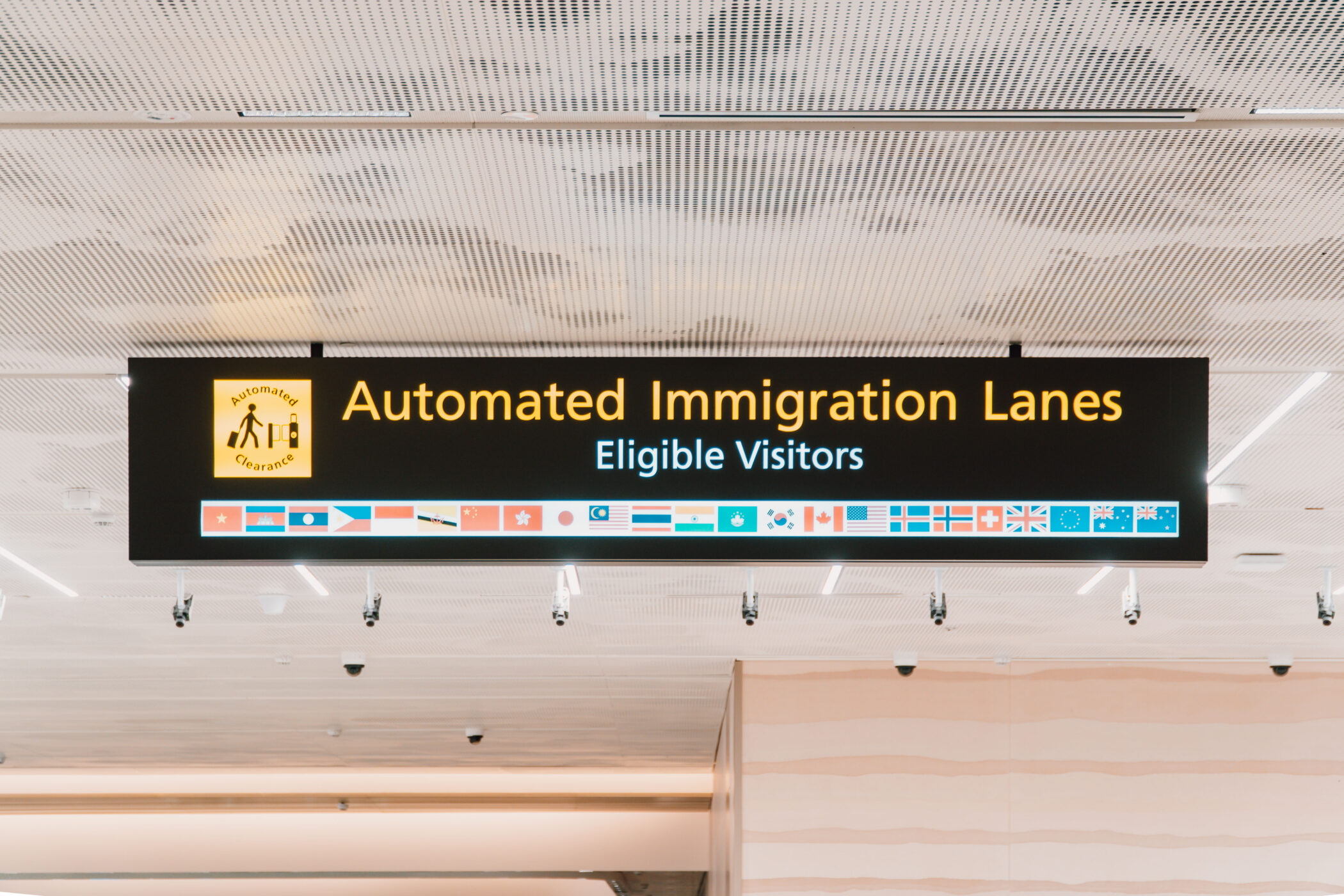Launching in 2024, Singapore’s Changi airport will implement a biometric immigration clearance system that means passengers won’t need to show their passports. Gemma Harris reports
Physical travel documentation may be a thing of the past next year at Singapore’s Changi airport, as it aims to speed up the travel process with facial scanning.
Set to launch in the first half of 2024, Singapore’s Changi airport will integrate an automated immigration clearance system, potentially enabling travellers to depart without physical passports, relying instead on biometric data for verification.
With over 100 airlines connecting 400 cities in approximately 100 countries, the four-terminal airport has served millions of passengers and is often hailed as the world’s best and busiest. It stands out with its futuristic features, such as the world’s tallest indoor waterfall and a rock climbing wall for passengers to entertain themselves before departing.
Since the Covid-19 pandemic, the airport has experienced a resurgence in passenger movements, with 5.12 million in June, surpassing the 5 million mark for the first time since 2020. This increased pressure and demand underscore the need for speed and efficiency in managing airport flow.

Josephine Teo, Singapore’s communications minister, says: “Our immigration systems must be able to manage this high-end growing volume of travellers efficiently and provide a positive clearance experience while ensuring our security.” Changi airport has already employed biometric technology, such as facial recognition, in the automated lanes at various checkpoints. The upcoming system will introduce a “single token of authentication”, which will be extended to multiple touchpoints, including bag drops, clearance and boarding.
Changi airport has already employed biometric technology, such as facial recognition, in the automated lanes at various checkpoints. The upcoming system will introduce a “single token of authentication”, which will be extended to multiple touchpoints, including bag drops, clearance and boarding.
Teo announced during a parliamentary speech that Singapore is set to become one of the first countries in the world to implement this automated, passport-free immigration clearance.
“It will reduce the need for passengers to repeatedly present their travel documents at touch points and allow for more seamless and convenient processing,” adds Teo.
While this new system will facilitate passport-free immigration for many, passports will still remain necessary for individuals heading to countries outside of Singapore that do not offer this passport-free clearance method, and documents will be necessary for boarding and landing in other countries.
The airport is in the process of expanding its infrastructure, including the addition of a fifth terminal to cater to the growing demand as the travel industry strives to return to pre-pandemic levels. This forthcoming biometric system is expected to be crucial in making the travel process smoother and more efficient.
Singapore is not the only nation adopting these new protocols, with the European Union working on a new entry and exit system (EES), which is set to replace physical passport stamping with the collection of biometric data.
